In a world where robots might soon take over the coffee-making duties, AI startups are leading the charge into the future. These innovative companies are like the cool kids in the tech playground, turning wild ideas into reality quicker than you can say “machine learning.” With a sprinkle of creativity and a dash of coding magic, they’re reshaping industries and changing how we live and work.
But don’t let the tech jargon scare you off. AI startups aren’t just for the Silicon Valley elite; they’re for anyone who dreams of a smarter, more efficient world. From healthcare to finance, these startups are tackling real problems and making life easier—while having a bit of fun along the way. So buckle up and get ready to explore the fascinating realm of AI startups, where the future is bright, and the coffee is still brewed by humans (for now).
Table of Contents
ToggleOverview of AI Startups
AI startups are rapidly transforming multiple sectors, including healthcare, finance, and education. These companies leverage machine learning, natural language processing, and computer vision to create innovative solutions. Notable examples of AI startups include OpenAI, which develops advanced language models, and Tempus, focused on precision medicine.
Startups in artificial intelligence often focus on accessibility. Many solutions previously reserved for large corporations now serve small businesses and consumers. Automation tools, for instance, streamline business processes and enhance productivity without the need for extensive technical knowledge.
Investment in AI startups has surged, reflecting confidence in their potential. In 2021 alone, venture capitalists invested over $33 billion in AI-related companies. This financial support allows startups to refine their technologies and expand their market reach effectively.
Collaboration across industries supports innovative developments. Partnerships between AI startups and established companies enable knowledge sharing and resource optimization. For example, the collaboration between Google and various startups enhances AI capabilities in personal assistant technologies.
Regulations are evolving to support AI innovations while addressing ethical concerns. Policymakers recognize the importance of fostering a safe environment for AI development. Guidelines are being established to ensure transparent AI systems that maintain user trust.
Investors, entrepreneurs, and consumers all benefit from the flourishing AI startup ecosystem. With ongoing advancements, artificial intelligence leads to smarter solutions and reshapes traditional business models. Reading about these startups provides insights into the future of technology and encourages exploration of their groundbreaking work in various fields.
Key Trends in AI Startups

AI startups are rapidly evolving, shaping industries and redefining business practices. Key trends highlight the innovative directions of this dynamic landscape.
Rise of No-Code Platforms
No-code platforms streamline AI development by enabling non-technical users to create applications. These tools significantly reduce barriers for entrepreneurs, allowing access to AI capabilities without extensive programming knowledge. Companies like Bubble and Airtable exemplify this trend by fostering creativity and rapid prototyping. User-friendly interfaces and intuitive design contribute to increased adoption, demonstrating the growing demand for accessibility in AI solutions. Increased collaboration between no-code platforms and AI startups drives innovation further, leading to a diverse range of user-generated applications.
Growth of AI in Healthcare
AI’s integration into healthcare addresses critical challenges, enhancing patient care and operational efficiency. Companies like Tempus leverage advanced analytics for precision medicine, improving treatment outcomes through data-driven insights. The global AI in healthcare market is projected to reach $45.2 billion by 2026, reflecting substantial investment and interest. Tools for diagnostics, personalized medicine, and resource management emerge as key focus areas in this sector. The collaboration between AI startups and healthcare providers fosters innovative solutions, promoting better health outcomes while optimizing costs and resources.
Challenges Faced by AI Startups
AI startups encounter various challenges that can impact their growth and innovation efforts. These hurdles often stem from the unique market conditions and technological landscape within which they operate.
Funding and Investment Hurdles
Securing adequate funding represents a significant challenge for AI startups. Venture capitalists invested over $33 billion in AI startups in 2021, indicating strong interest. Despite this, many emerging companies struggle to attract necessary investment, particularly in early stages. Investors often seek established track records or proven technologies, which new startups may lack. Diverse funding sources, including angel investors and crowdfunding, can alleviate this pressure, yet they often remain underutilized.
Regulatory Compliance Issues
Regulatory compliance poses another obstacle for AI startups. New regulations aim to address ethical concerns and govern the use of AI technologies, leading to confusion around compliance requirements. Navigating these complex regulations demands substantial time and resources, diverting focus from product development. Moreover, varying regulations across regions further complicate compliance efforts for startups aiming for global reach. Partnerships with legal experts can help startups stay informed and adapt to these evolving regulations effectively.
Success Stories of AI Startups
OpenAI stands as a leading figure in AI startup success, particularly known for developing advanced language models that change how individuals and businesses interact with technology. Tempus follows closely, specializing in precision medicine by utilizing robust analytics to personalize patient care. Acquisitions by major companies often spotlight these startups, showcasing their innovations leading to improved solutions in various sectors.
A noteworthy achievement includes the collaboration between AI startups and larger corporations, which drives the creation of transformative products. An influx of over $33 billion in venture capital funding for AI startups in 2021 reflects significant investor confidence in their potential. Breakthroughs in sectors like healthcare and finance illustrate how these startups revolutionize traditional practices, leading to improved outcomes for patients and clients alike.
No-code platforms like Bubble and Airtable enable non-technical users to create applications, promoting innovation and accessibility across various industries. The AI in healthcare market, projected to reach $45.2 billion by 2026, highlights the massive investment and interest in this area, demonstrating startups’ potential to significantly impact patient care.
Challenges persist, including securing funding and navigating regulatory landscapes, but many startups persist in finding solutions. AI startups like TechSee and Cognitivescale exemplify resilience by addressing unique problems, ensuring they remain competitive. By highlighting these success stories, the AI startup landscape reveals ongoing opportunities, driving forward-thinking solutions and improvements across diverse fields.
Future Outlook for AI Startups
AI startups are positioned for significant growth as innovation accelerates across various sectors. The trend toward no-code platforms opens opportunities for diverse entrepreneurs to develop applications, empowering individuals without a technical background. As companies like Bubble and Airtable become mainstream, creativity flourishes, showcasing new solutions.
Investment in AI startups continues to surge, with venture capital injections exceeding $33 billion in 2021. This trend signals investor confidence and a clear recognition of AI’s potential. Markets, especially in healthcare, are expected to thrive; the global AI in healthcare market is set to grow to $45.2 billion by 2026. Startups that leverage advanced analytics can enhance patient care while improving operational efficiency.
Growing collaboration between AI startups and established firms is another promising sign. Innovations produced through these partnerships reflect the adaptive nature of modern business practices. For instance, successful startups like OpenAI and Tempus demonstrate how collaboration drives product development and market relevance.
Challenges do exist, though; securing funding and navigating regulations remain critical issues. Many AI startups, including TechSee and Cognitivescale, actively tackle these hurdles and pivot toward unique solutions. Addressing ethical considerations in AI development also requires ongoing dialogue among industry leaders and regulators.
Future opportunities hinge on these startups’ capacity to respond to evolving market demands. Increased focus on responsible AI practices will shape industry standards, influencing investment strategies and operational frameworks. As they continue to revolutionize various sectors, AI startups will play a vital role in the digital transformation of the economy.
AI startups are reshaping industries and driving innovation at an unprecedented pace. Their ability to democratize technology empowers a diverse range of entrepreneurs to bring fresh ideas to life. As investment continues to surge and collaboration flourishes between startups and established companies, the potential for groundbreaking solutions grows.
The landscape is evolving with no-code platforms making it easier for non-technical users to participate in the AI revolution. While challenges remain in funding and regulation, the resilience of these startups highlights their commitment to addressing real-world problems.
The future of AI startups looks bright as they pave the way for smarter solutions across various sectors. The journey of AI innovation is just beginning and promises to leave a lasting impact on society.




